The Advantages Of Aluminum Packaging
This article aims to provide a comprehensive overview of aluminum packaging, exploring its definition, benefits, and applications. Aluminum packaging refers to the use of aluminum materials for various types of packaging applications such as aluminum tins and aluminum bottles. Due to its exceptional properties and numerous advantages, aluminum packaging has grown in popularity across multiple industries. With its lightweight composition and outstanding barrier capabilities, aluminum emerges as a remarkably versatile metal that can cater to various product requirements encompassing beverages, foodstuffs, pharmaceuticals, and cosmetics. The lightweight aluminum makes it convenient for transportation and reduces carbon emissions during shipping. Furthermore, the article highlights the sustainable aspects of aluminum packaging, emphasizing its recyclability and contribution to reducing packaging waste. Lastly, it discusses the benefits of adopting aluminum packaging from the customer, seller, and environmental points of view.
Aluminum Packaging’s Growing Popularity
Aluminum packaging's surging popularity stems from its exceptional ability to shield products from light, oxygen, moisture, and foreign substances. By doing so, the packaged goods' freshness, taste, and quality are preserved, ultimately prolonging their shelf life. Aluminum bottles are particularly favored for beverages, as it provides an effective barrier against light and oxygen, ensuring that the drink inside remains fresh and carbonated. Its excellent recyclability further contributes to its growing demand as it requires only 5% of the energy to recycle aluminum rather than making it from virgin ore, allowing for significant energy savings[1]. Another significant advantage of aluminum packaging is its durability. Aluminum is a corrosion-resistant material that can withstand harsh environmental conditions, including extreme temperatures and humidity. This property ensures that the packaged products remain intact and protected during transportation and storage. Cosmetic industry also heavily uses aluminum pouches and aluminum squeeze tubes for their cosmetic products; its durability and aesthetic appeal make it an ideal choice for premium brands seeking sustainable yet visually appealing packaging solutions. Custom aluminum packaging such as aluminum bottles and cups are also famous with younger generations further increasing the popularity of aluminum packaging.
Additionally, technological advancements have resulted in inventive designs in aluminum packaging that promote consumer convenience. Containers with lids and aluminum pouches with resealing features are easy and effective designs that allow users to protect their product. In recent years, there has been a shift in consumer preferences toward sustainable and environmentally friendly packaging options. This has further boosted the popularity of aluminum packaging, as it aligns with these values.
Overall, the introduction of aluminum packaging has revolutionized the industry by promoting sustainability while meeting consumer demands for practicality and preserving product quality.
Aluminum Packaging Vs. Traditional Packaging Materials
Aluminum packaging plays a crucial role in safeguarding products while offering several advantages over other materials. The market offers a wide range of aluminum packaging options such as aluminum bottles and aluminum tins, each tailored to meet specific needs and offers distinctive benefits for different purposes. This blog will also compare aluminum packaging with other traditional packaging materials such as plastic, glass, paper, etc.
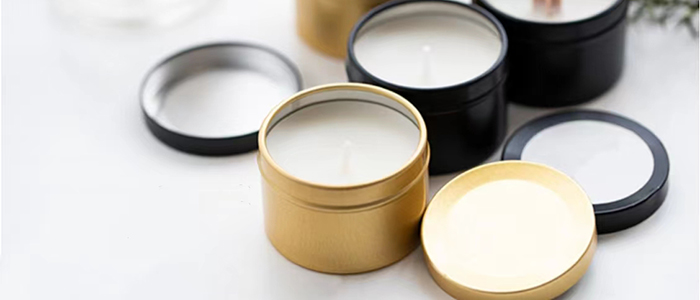
Aluminum Tins vs conventional Metal Tins: Aluminum tins are widely used for packaging beverages and cooked food. Carbonated drinks, beer, and energy drinks are some common examples of aluminum packaging solutions. The benefits of aluminum tins include lightweight and recyclability, but the one thing that differentiates aluminum tins from conventional metal tins is their corrosion-resistant chemical property. Aluminum's resistance to corrosion and rust ensures product integrity and longevity and increases its shelf life; however, on the other hand, conventional metal tins can get rusty over time, compromising the product stored inside the cans.
Aluminum Bottles vs Plastic Bottles: Aluminum packaging and especially aluminum bottles in recent years have been gaining popularity for good reasons. These bottles provide exceptional protection against light, oxygen, and moisture, ensuring the contents' long shelf life and freshness. However, aluminum bottles have a few added advantages over plastic bottles. Firstly, aluminum bottles are reusable, whereas plastic bottles are often single-time-use bottles. Aluminum bottles are also more durable than plastic bottles, offering better resistance to impacts and temperature changes. Aluminum also has excellent barrier properties naturally, which means it is free from harmful chemicals, such as BPA, unlike plastic bottles. You might be wondering what is BPA and why it concerns consumers. It's this chemical that's used to make plastic waterproof. But it has been found that BPA can leach into food and beverages from plastics that store them. How does that happen? Well, when we heat our food in the microwave or use plastic bottles for a long time, the BPA can seep out and mix with what we're consuming, and that's not good news. Studies have linked BPA exposure to numerous health issues, such as hormone disruption, reproductive problems, neurological disorders, and increased risk of certain cancers. However, the Food and Drug Administration (FDA) says that as long as we're exposed to low levels of BPA, it will probably not harm us[2]. Experts are still conducting more research on BPA and its effects. In the meantime, as the saying goes - it is better to be safe than sorry, one should always consider using the proven safe and reliable aluminum packaging products.
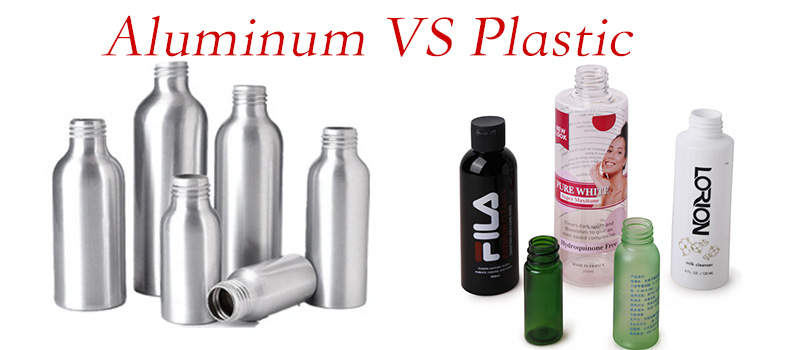
Aluminum Bottles vs Glass Bottles: Glass bottles, just like aluminum bottles, are eco-friendly and free from harmful chemicals; however, glass bottles are bulky and brittle. Aluminum packaging solutions are way more stronger than glass which can withstand the wear and tear of transportation. Aluminum bottles are lightweight and stackable, making them convenient for transportation and storage. Aluminum is lightweight, making it cheaper to transport and reduce carbon emissions. Additionally, aluminum packaging can be shaped easily into different forms, providing flexibility in packaging design.
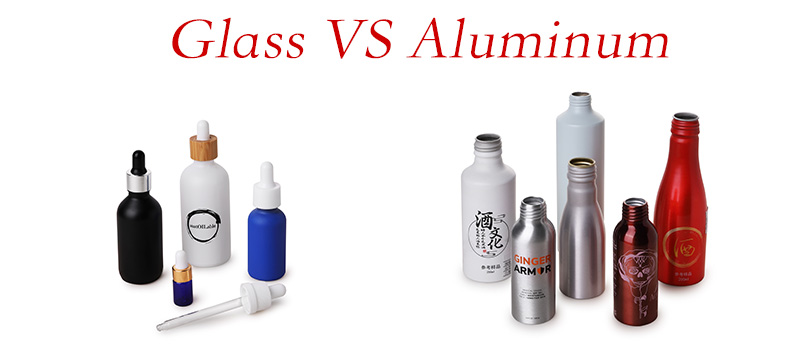
Aluminum Pouches vs Paper: Aluminum pouches are commonly used for packaging products such as snacks, coffee, pet food, and pharmaceuticals. Aluminum pouches provide an effective barrier against moisture, bacteria, and odor while maintaining the freshness and flavor of food products. Aluminum packaging can withstand high temperatures compared to paper, making them suitable for cooking or reheating purposes. Aluminum pouches can be designed with zip locks, tear notches, and spouts, enhancing convenience and usability. Paper does not provide any of the facilities mentioned earlier as compared to aluminum packaging.
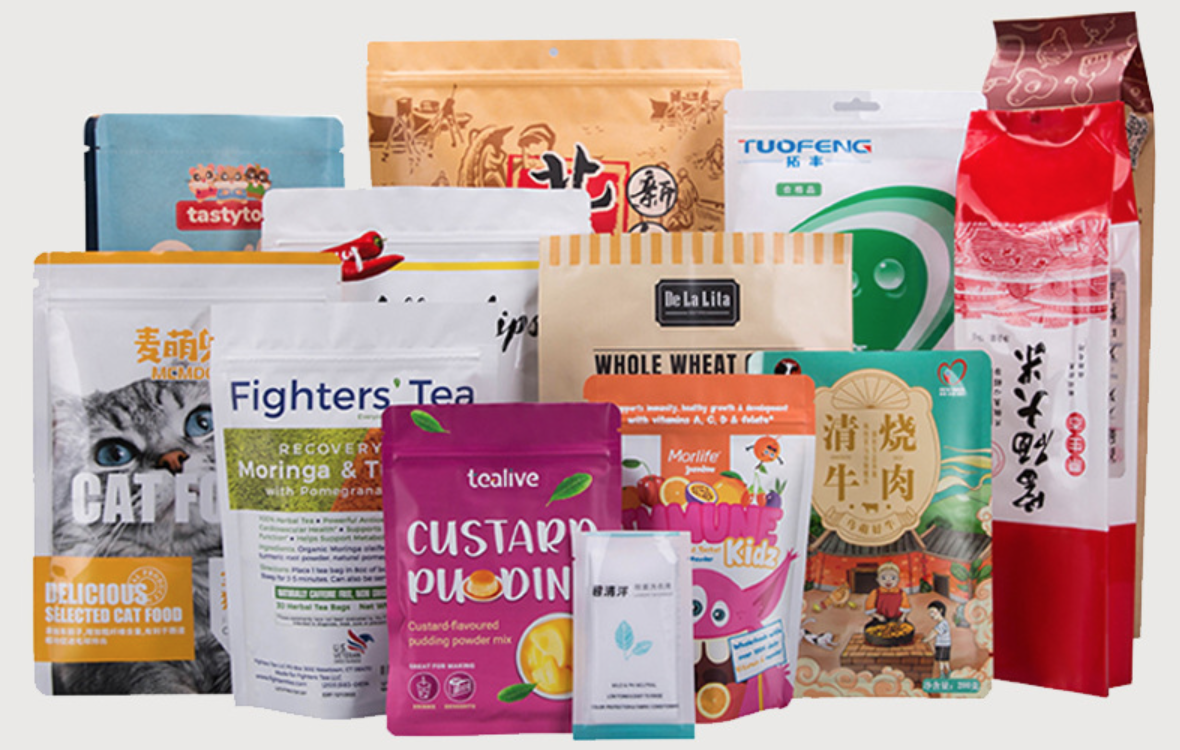
In conclusion, aluminum packaging comes in various forms, each offering unique advantages that cater to specific customer needs of different industries ensuring optimal functionality and sustainability of packaged goods.
Benefits Of Aluminum Packaging For Consumers
Aluminum packaging offers numerous benefits for consumers, making it an ideal choice for various products. Aluminum packaging provides versatility in design and functionality, catering to diverse consumer needs. It can be easily shaped into different forms, such as aluminum bottles and aluminum pouches, providing options for different product categories. Aluminum packaging can also incorporate features like easy-open lids, resealable closures, and spouts, enhancing convenience and usability for consumers. Furthermore, aluminum is lightweight and easy to handle yet highly durable, ensuring that packaged goods remain protected during transportation and storage. Its strength and durability guarantee the integrity of the package, preventing leaks, breakages, or damages, which is essential for consumer confidence and satisfaction. Aluminum is an excellent barrier against oxygen, moisture, light, and other potential contaminants, ensuring the preservation of the product's quality and freshness. The material is also non-toxic and resistant to corrosion[3], ensuring that it does not react with the contents and alter their taste or freshness. Consumers can be rest assured that the aluminum packaging effectively protects the contents from external factors that can compromise taste, aroma, and overall safety. Moreover, aluminum products such as aluminum bottles and cans are easily reusable and recyclable, which aligns with today's growing focus on sustainability and environmental responsibility. By choosing aluminum packaging, consumers contribute to reducing waste and conserving resources while enjoying the convenience of lightweight yet robust containers that preserve product integrity impeccably.
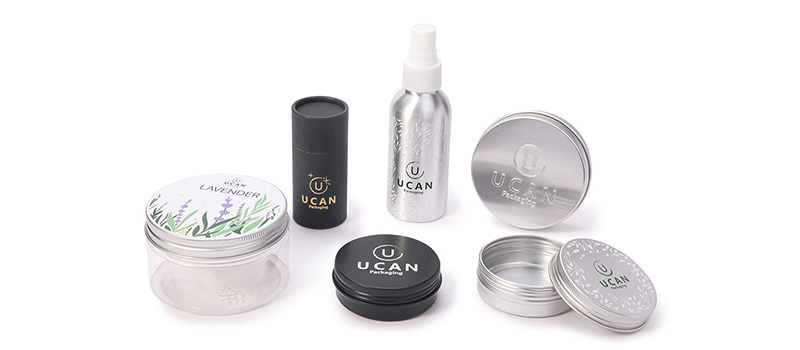
Benefits Of Aluminum Packaging For Companies
Aluminum packaging can be very useful and beneficial for sellers alike. As discussed above, aluminum provides complete product safety and extends the shelf life of the products like food, cosmetics, and pharmaceuticals. The sturdiness of aluminum packaging reduces the risk of damage, leaks, and contamination, safeguarding the product. This can help businesses to ensure customer satisfaction and damage-free delivery of their products. Aluminum packaging for example aluminum pouches and aluminum squeeze tubes can enhance a brand's image and help differentiate products. Its sleek and modern appearance gives a premium and high-quality perception to consumers. Using aluminum packaging can convey a sense of sophistication and luxury, positively impacting the brand's reputation and consumer perception. Aluminum packaging also offers versatility in design and can be easily customized to meet specific branding and product requirements. It can be embossed, printed, or labeled with brand logos, product information, and marketing messages, providing a platform for effective branding and promotion.
Brands can further align themselves as eco-friendly and green brands by adopting aluminum packaging. Aluminum packaging is lightweight, which makes it advantageous for logistics and transportation. The lightweight nature reduces the overall weight of packaged goods, resulting in cost savings in fuel consumption, shipping expenses, and costs associated with warehousing[4]. Additionally, aluminum packaging such as aluminum tins are stackable and requires less space, optimizing storage and warehouse efficiency. The lightweight aluminum also helps to reduce carbon emissions, further boosting the brand image. This aspect aligns with the increasing consumer demand for sustainable and eco-friendly products, which allows the seller to grab potential new customers.
Benefits Of Aluminum Packaging For The Environment
The introduction of aluminum to the packaging industry might be the best thing that happened to the industry. Aluminum is infinitely recyclable, meaning it can be recycled repeatedly without losing its inherent qualities[5]. This feature ensures that aluminum packaging does not contribute to the mounting waste crisis and reduces the reliance on virgin materials, conserving valuable natural resources. In addition, the recycling procedure for aluminum demands notably less energy than the production of new aluminum from raw materials, causing a substantial decline in carbon emissions.
Furthermore, aluminum is a naturally occurring material free from harmful and toxic chemicals. This is a significant advantage of aluminum packaging over other packaging materials. In the case of aluminum being not treated properly and found in landfills, oceans, or forests, there is no release of detrimental toxins that could compromise the purity of the ecosystem. This is because aluminum is highly resistant to corrosion and does not react with air or water in its solid form. Aluminum's non-toxic properties prevent it from contributing to the production of dangerous leachates when waste materials decompose and interact in landfills. Similarly, when aluminum packaging waste finds its way into oceans or forests due to improper disposal or littering, it remains harmless to the environment. Unlike certain plastics or metals that break down into microplastics or release harmful substances when exposed to sunlight and water, aluminum remains stable and non-toxic. These characteristics make aluminum truly an environmentally friendly packaging material.
The Future Of Aluminum Packaging
Aluminum packaging has revolutionized the industry by presenting diverse advantages to consumers, sellers, and environmental sustainability. With its exceptional barrier properties, lightweight composition, and recyclability, aluminum packaging ensures the preservation of product quality while reducing carbon emissions and waste. Consumers benefit from the convenience, durability, and safety that aluminum packaging, such as aluminum bottles and aluminum pouches, offers while sellers can also enhance their brand image and operational efficiency. Moreover, the sustainable aspect of aluminum packaging, with its eco-friendly properties, recyclability without limits, and lack of toxicity, aids in conserving resources and safeguarding our ecosystems. By embracing aluminum packaging, industries can align themselves with the growing demand for sustainable solutions and pave the way for a greener future. With its versatility, functionality, and positive impact, aluminum packaging continues to revolutionize the packaging landscape, meeting the needs of consumers, sellers, and the environment in remarkable ways.
[5] https://www.hydro.com/en/about-hydro/stories-by-hydro/aluminium-is-100-percent-recyclable/
